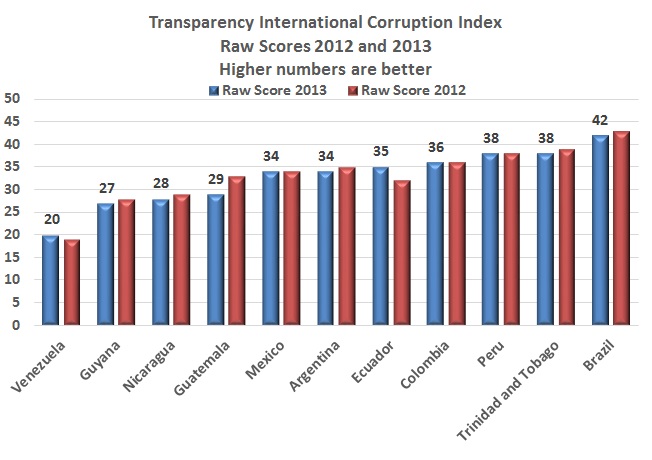
Almost exactly a year ago we published the results of Transparency International’s annual Corruption Perception Index. The graph shows that Colombia’s position has not changed, maintaining its score, its global ranking and maintaining its position relative to other Latin American countries seeking to attract oil and gas investors. The same cannot be said for all of its peers, some of whom have gotten much better (Ecuador) and some of whom have slid down the scale (Guatemala).
Only a day after Ecopetrol and Talisman announced a major discovery in CPO-9, comes this story about complaints of odors in another part of the municipality of Acacias, Meta.
The USO announced the results of their election at the end of November, and the new president Edwin Castaño Monsalve´s first task was to lead an alert that three members of the union have been detained in what the organization calls a judicial set up for actions against Pacific Rubiales (TSX:PRE).
Incidents near areas of interest to the oil and gas industry were down 7% this week at 26 below recent and long-term averages. Non-Armed Forces incidents were about double the long-term average. This is our indicator of increased guerrilla-initiated activity. Correspondingly, our 4-week Moving Average incident count was down to 26.0 and the 52 week average was down at 32.6 incidents per week.
Pacific Rubiales Energy (TSX:PRE) says it has finished and launched an electrical transmission line that runs from the hydro-electrical center in Chivor, Boyacá to its flagship field Rubiales in Meta, which it says will save US$100M in operational costs annually.
The Ministry of Mines and Energy (MinMinas) and the Ministry of Environment and Sustainable Development (MinAmbiente) have agreed to create a protocol and environmental guide for contractors to follow, citing in particular seismic exploration activities.